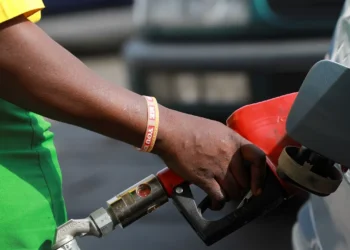The International Monetary Fund (IMF) has stepped in to provide crucial financial assistance to Kenya, approving the disbursement of a $1 billion loan. The loan is aimed at supporting the country’s efforts in combating the ongoing economic crisis and bolstering its initiatives in fighting climate change.
Kenya, like several other African nations, is grappling with a challenging economic landscape exacerbated by a global economic downturn and surging inflation. Dwindling revenues and escalating borrowing have added to the country’s financial woes, resulting in struggles to pay salaries while citizens voice their discontent over the rising cost of living.
Over the years, Kenya’s external debt has skyrocketed from $10.2 billion in 2013 to a staggering $34.8 billion by 2020. The significant increase in debt has not gone unnoticed by the IMF, sparking criticism over the lender’s decision to approve additional loans to the Kenyan government. Many have raised questions about providing further financial assistance to a country already burdened with mounting debt, leading to opposition protests and doubts regarding the government’s financial management capabilities.
Addressing the seriousness of Kenya’s debt situation, the IMF has put forth recommendations to address the issues. These measures include cutting tax leakage and subsidies to reduce the country’s fiscal deficit, advocating for debt reduction, and encouraging the government to fund its budget internally. However, skepticism remains among many Kenyans about the purpose and impact of these loans, given the country’s struggles to meet its debt obligations.
In defense of the IMF loans, the Kenyan government asserts that this financial assistance is essential to bridge the budget gap and support critical government projects, ultimately easing the burden on citizens. However, this argument has not quelled all concerns, particularly as some argue that the IMF’s involvement has led to increased taxes for ordinary citizens, resulting in perceptions of reduced income due to high taxation laws.
While the pursuit of enhanced revenue mobilization may be a sensible step towards achieving long-term economic stability, implementing such measures during harsh economic conditions has proven challenging. As a result, dissatisfaction among Kenyans towards the IMF and the government’s ability to alleviate their economic hardships has grown.
President William Ruto and his Kenya Kwanza team had initially pledged caution regarding international loans. However, they have significantly deviated from this promise, accumulating a staggering KES 1.2 trillion in debt over the past eight months. This debt accumulation further burdens citizens, as they are likely to bear the cost of the loans.
The situation has put Kenya in a delicate position, with the country facing a debt crisis that necessitates IMF loans to fund critical programs, as internal revenue falls short of meeting financial obligations. While the IMF’s involvement and stringent loan conditions aim to promote a more economically sustainable climate, they also raise concerns about the potential exacerbation of the debt crisis in the short term.
Despite facing criticism and sparking protests, these IMF loans play a vital role in addressing the fiscal gap and supporting Kenya’s economic endeavors. As the country grapples with economic challenges, the approved loans provide much-needed financial support to steer the nation towards a more stable future.











